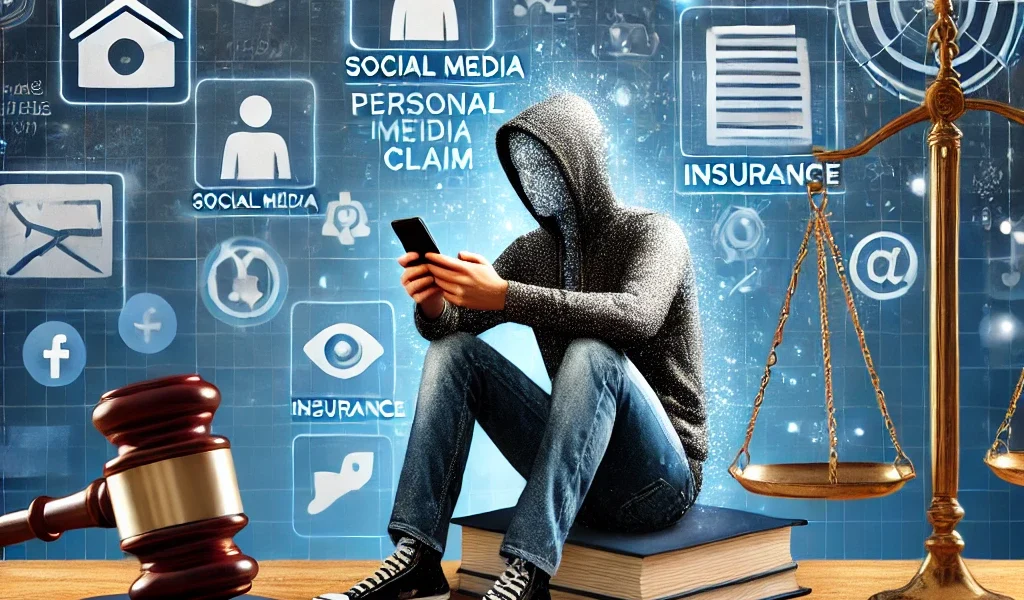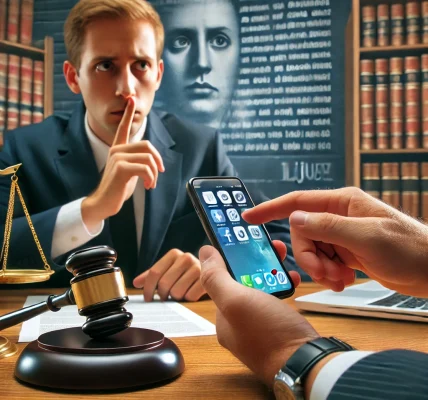Introduction
Social media has become an integral part of our daily lives. Platforms like Facebook, Instagram, Twitter, and TikTok allow us to share personal experiences, connect with others, and stay informed. However, if you are involved in a personal injury claim, social media can become a double-edged sword that could negatively impact your case.
Insurance companies and defense attorneys often monitor social media activity to find evidence that may undermine your claim. A single post, photo, or comment can be used against you, reducing or even eliminating your compensation.
In this blog, we will discuss the potential risks of social media during a personal injury claim, common mistakes to avoid, and best practices to protect your case.
1. How Social Media Can Be Used Against You
During a personal injury case, the opposing party will look for inconsistencies in your claim. Social media provides them with a valuable tool to gather evidence. Here’s how it can be used against you:
A. Contradicting Your Injury Claims
If you claim that an injury has limited your mobility but post photos or videos engaging in physical activities (e.g., dancing, exercising, or traveling), it can be used to argue that your injury is not as severe as you stated.
Example:
- You are seeking compensation for a back injury but post a photo hiking with friends. The insurance company may use this to deny or reduce your claim.
B. Checking Your Location & Activities
Even if you don’t directly post about your activities, location tags and check-ins can reveal information about your movements that may contradict your claim.
Example:
- Your claim states that you are unable to work due to an injury, but your LinkedIn profile shows you started a new job.
C. Misinterpretation of Posts & Comments
Even casual or humorous comments can be taken out of context and used against you in court. Defense attorneys may argue that your mental distress is exaggerated if you are seen engaging in social activities online.
Example:
- You post “Feeling great today!” or “Out with friends for a fun night!” while claiming emotional distress.
2. Common Social Media Mistakes That Can Harm Your Claim
To protect your case, avoid these common social media mistakes:
A. Posting About the Accident or Injury
- Never post details about the accident, injuries, or treatment.
- Avoid discussing who was at fault or admitting any responsibility.
B. Accepting New Friend Requests
- Insurance companies sometimes create fake profiles to gain access to your private posts.
- Be cautious about accepting new friend requests from people you don’t know.
C. Posting Photos or Videos
- Avoid posting any physical activities, vacations, or events that could be misinterpreted.
- Even old pictures that get reposted can create misunderstandings.
D. Commenting on Others’ Posts About the Accident
- Your comments can be screenshot and used as evidence.
- Even private messages are not always confidential.
3. Best Practices to Protect Your Personal Injury Claim
To ensure social media does not negatively impact your claim, follow these best practices:
A. Set Your Accounts to Private
- Adjust your privacy settings to limit access to your posts.
- However, remember that even private content can be accessed through legal requests.
B. Stop Posting Until Your Case Is Resolved
- The safest approach is to pause social media activity entirely during your case.
- Inform close friends and family not to tag or mention you in posts.
C. Monitor Old Posts & Photos
- Review past content to ensure nothing could be misinterpreted.
- Consider removing location tags and check-ins.
D. Be Careful With Direct Messages
- Insurance companies may gain access to private messages through legal means.
- Avoid discussing case details, injuries, or settlements with anyone online.
E. Follow Your Attorney’s Advice
- Your personal injury attorney can guide you on what is safe to post.
- If in doubt, ask your lawyer before sharing anything.
4. Can Deleting Posts Help?
Deleting posts after an accident can be seen as tampering with evidence and may be used against you. Instead of deleting, stop posting and consult your lawyer about managing your online presence.
Conclusion
Social media can have a significant impact on your personal injury claim. Insurance companies and defense attorneys will actively search for any information that contradicts your claims. A seemingly innocent post can lead to reduced compensation or even case dismissal.
By limiting social media activity, adjusting privacy settings, and following your lawyer’s advice, you can protect your claim and maximize your compensation.
If you have suffered an injury and are pursuing a personal injury claim, consult an experienced attorney who can guide you on the best legal strategy and ensure that social media does not become a roadblock in your case.
Stay cautious, stay protected, and secure the compensation you deserve!




